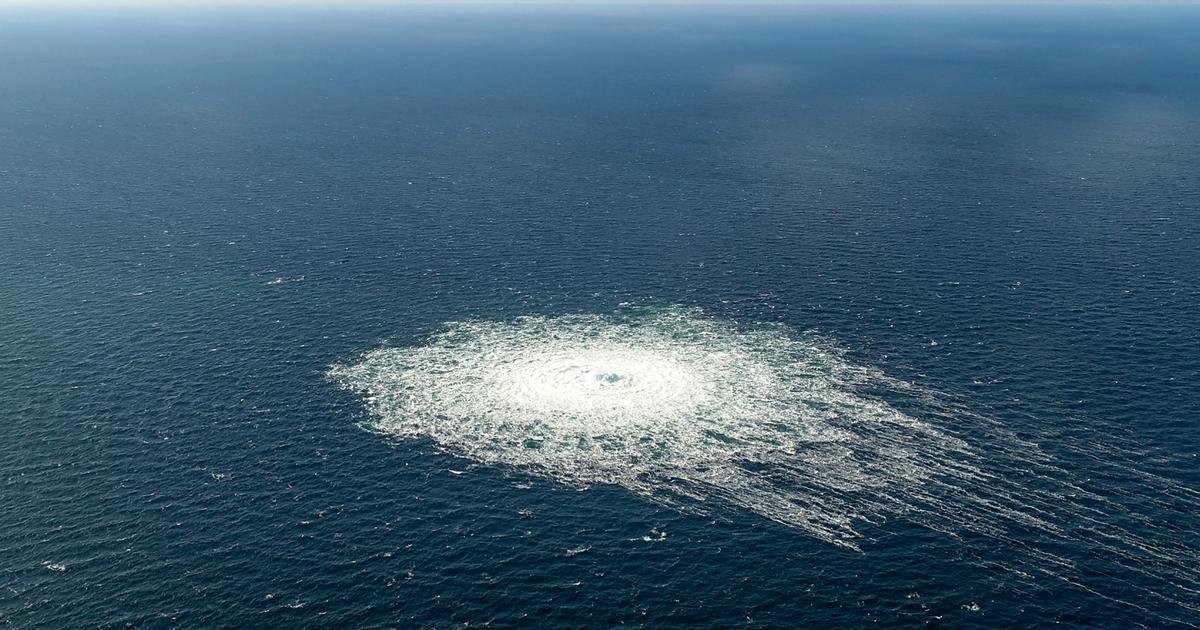The U.S. government knew, three months before it happened, that Ukraine's military was planning to blow up the Nord Stream pipelines last year in a covert sabotage operation. This is stated in documents leaked on a channel of the digital platform Discord by the soldier Jack Teixeira and to which The Washington Post has had access. The Ukrainian plan envisaged, according to the newspaper, using a small group of divers under the direct orders of the commander-in-chief of the Armed Forces of the former Soviet republic, Valeri Zaluzhni.
The information about those plans came from an individual in Ukraine and was obtained by the intelligence services of a European country, which communicated it to the CIA in June 2022. Zaluzhni had taken charge of the operation to keep President Volodymyr Zelensky on the sidelines, according to the Western source. The CIA in turn transferred the data to other European intelligence entities, including the German secret services.
The report contains numerous very specific data, such as the number of people who were to participate in the act of sabotage and the method of attacking gas pipelines, one of the main routes of transport of Russian natural gas to Europe. The precise details show that "for almost a year the Western allies had reason to suspect [the participation of] Kiev in the sabotage," says the newspaper, which recalls that this impression "has been reinforced in recent months, after German investigators discovered evidence about the explosion that coincides in a striking way with what the European intelligence service had said Ukraine was planning. "
The information that reached the European secret services indicated that the Ukrainian forces planned the coup for June, specifically between 5 and 7, while military maneuvers of NATO allies known as Baltops were taking place in the area. The attack did not take place for reasons that were not specified.
The explosion of the Nord Stream gas pipelines on the seabed of the Baltic Sea, about 70 meters deep, occurred in September last year, without anyone having been clearly attributed responsibility for the attack so far. Suspicions have fallen, depending on who launched them, on Kiev – a firm critic of Nord Stream as an alternative to the passage of Russian gas through its territory – Moscow, London or Washington.
The spectacular attack was a technical boast. The authors placed the high-powered explosive charges at the bottom of the Baltic and detonated them undetected in an area of heavy maritime traffic. The tubes installed on the seabed travel a route of 1,200 kilometers that crosses territorial waters of five countries: Russia, Finland, Sweden, Denmark and Germany. The Nord Stream 2 gas pipeline, the most recent – its construction was completed in 2021, a decade after the original pipeline, Nord Stream 1 – measures 1.1 meters in diameter and the thickness of its walls is 4.1 centimeters. Germany, which before the beginning of the war in Ukraine imported 60% of its natural gas needs from Russia, suspended the definitive approval to the use of that pipeline two days before the Russian invasion of its neighbor, in February 2022. At the time of the explosion, the gigantic pipeline contained 300 million cubic meters of gas.
German investigators in charge of clarifying the case have found indications that the attack was carried out by six individuals who rented a pleasure yacht in Warnemünde (Germany), the Andromeda, with false passports and through a Polish front company. In the cockpit of the ship, traces of explosive similar to the one used to blow up the Nord Stream pipes have been found. At least one of them is linked to Ukrainian forces.
The plans received by the European intelligence service differ slightly from how the sabotage was carried out in September. Among other details, the idea was to rent the yacht in another European location. There is also no mention of Nord Stream 2. According to intelligence sources cited by the newspaper, the differences may be because Ukrainian forces knew that the plot had been leaked and changed some details to erase traces.
The European information initially received a cold reception in the CIA, which nevertheless transferred the data to other secret services of the Old Continent. But the European agency is considered reliable by its American partners, and those responsible for that entity considered in turn that its source was of quality. But that data was not the only one handled by the US intelligence services: in the months before the explosion their eavesdropping captured conversations in which sabotage was alluded to, although these were not analyzed until after the attack.
In March, The New York Times cited intelligence sources to indicate that a pro-Ukrainian group may have been responsible for the attack.
After the sabotage, initial theories in Washington and European capitals pointed to Russia's responsibility. But it is unclear what benefit Moscow would bring to blowing up a source of huge revenues and valuable influence over Europe, and in a year there has been no indication that the Kremlin could be behind the coup. Moscow, which denies any involvement, pointed at the time to the United Kingdom as responsible for the sabotage, without providing evidence.
Follow all the international information on Facebook and Twitter, or in our weekly newsletter.

/cloudfront-eu-central-1.images.arcpublishing.com/prisa/XQN2SXWC53JHGT75FPIOJTXHXQ.jpg)




